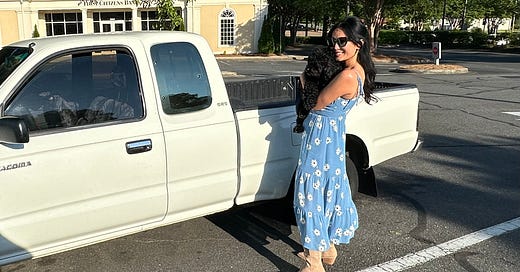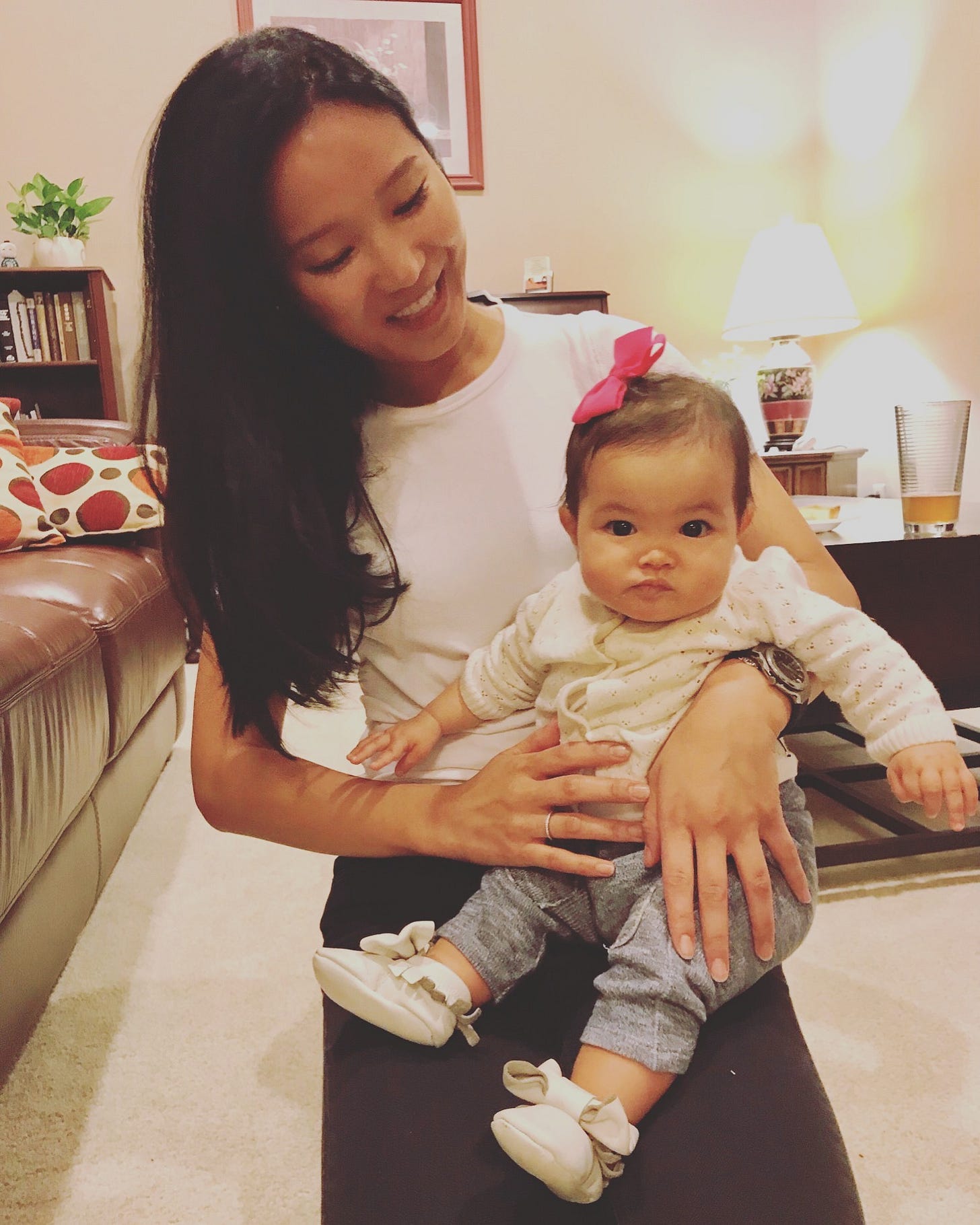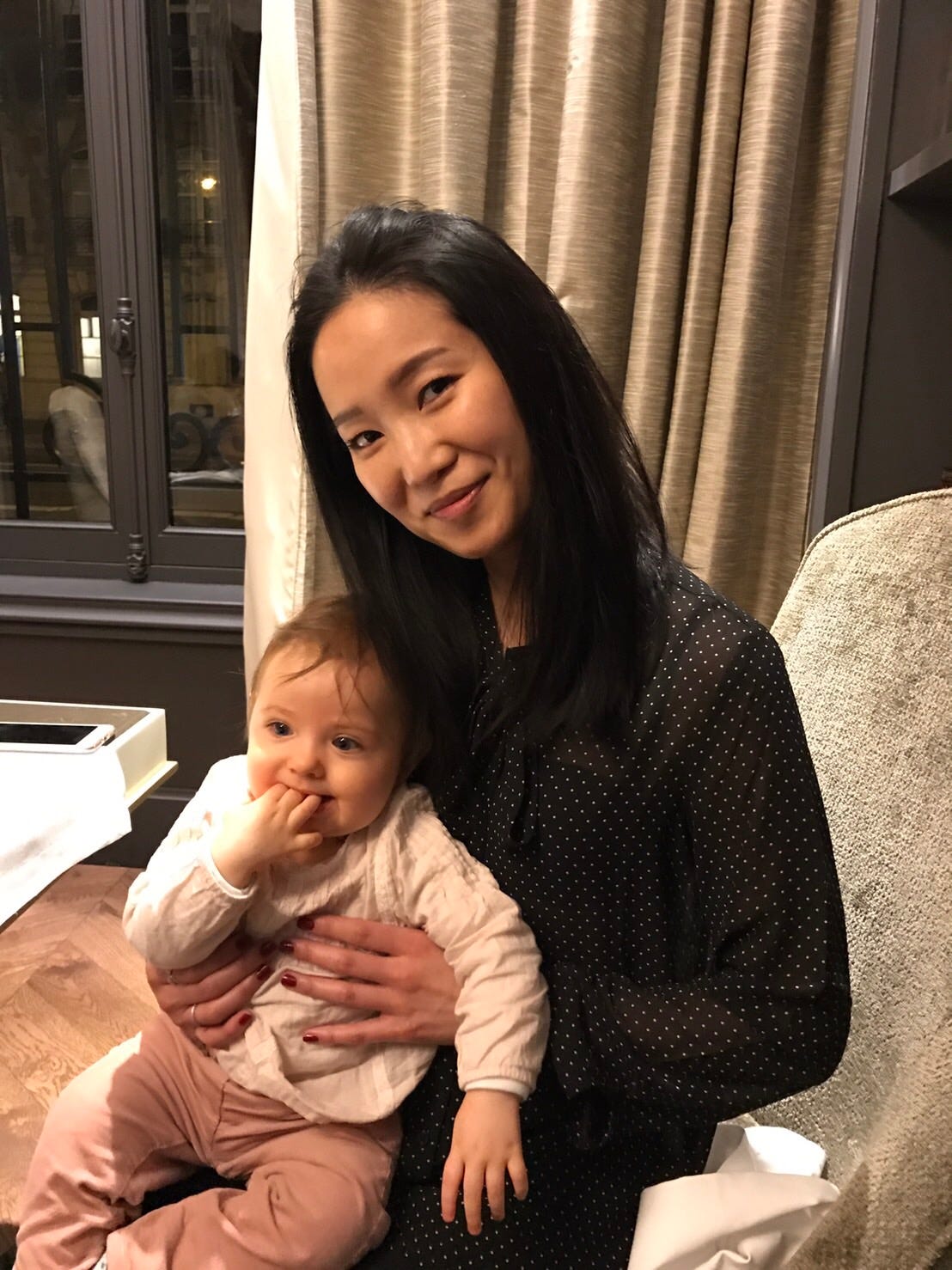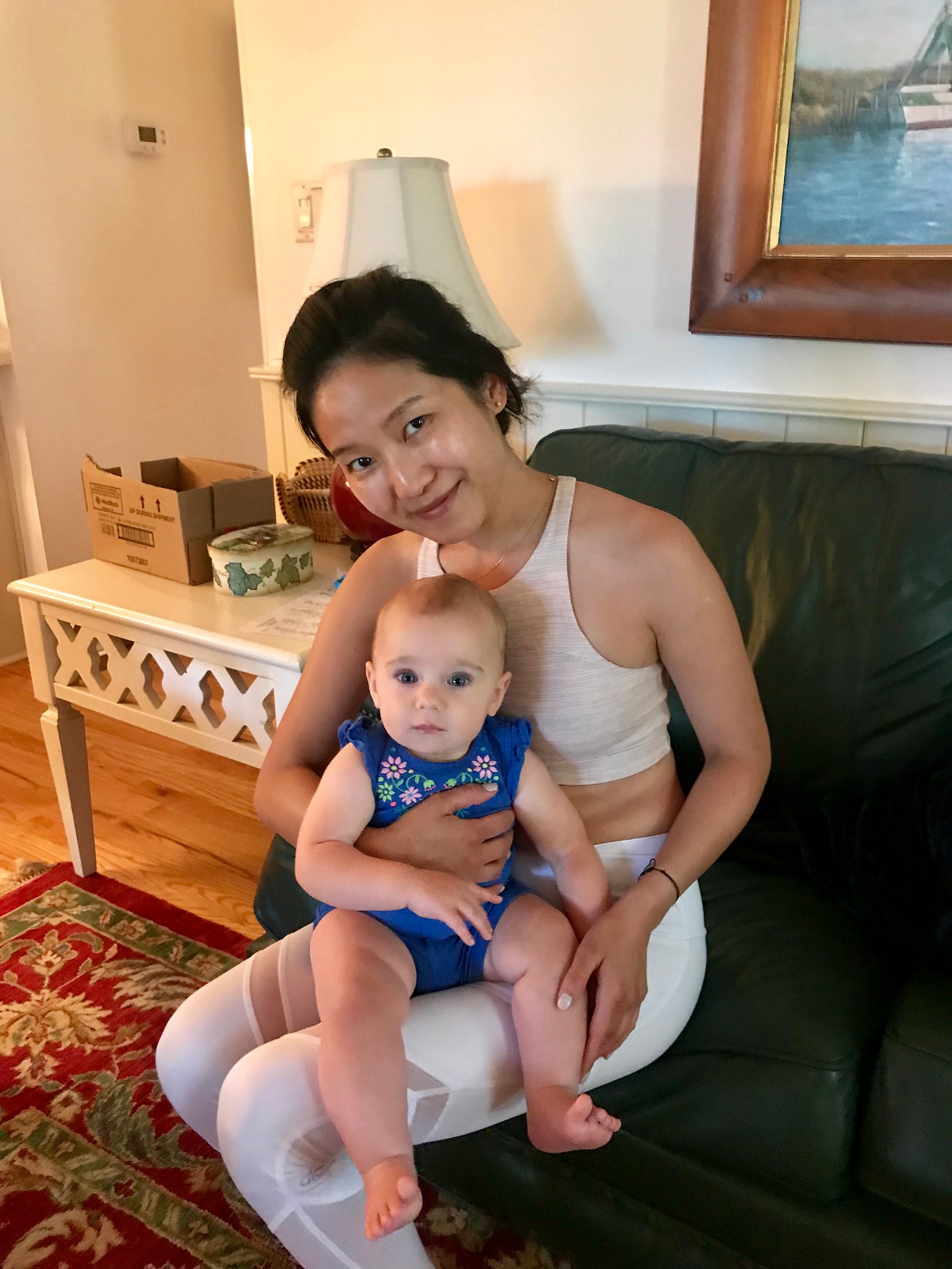Dear reader: If you’d like to skip straight to costs and resources, then scroll down this week’s newsletter.
When I was 27 and married, I had a lot of priorities.
Starting and finishing business school was one of them. Starting a family was not.
My ex-husband, who was 20 years my senior, wanted to know when we were going to have children.
Though we discussed it before getting married, it seemed as if the pressure really kicked in after we tied the knot.
But I wasn’t ready and I had certain personal and professional goals to accomplish, like completing business school.
Three years later, with business school and now divorced, my priority became starting a new career in a foreign city and country with a new partner.
Again, starting a family was not.
When I was late, I informed him I could be pregnant. His reaction: “We're not ready.”
“We're never going to be ready,” I sighed.
It was a false alarm, but back then, I almost hoped that I was. Not to entrap him, but because I personally felt more confident in my maternal abilities.
When I was back in New York without him, our relationship over, my priority was starting over back in the U.S.
And once again, starting a family was not.
But then, at 35, I discovered I had low ovarian reserve.
The universe has humbling and funny ways of telling you what’s what.
Because I’d been pregnant before, I always thought I’d be able to eventually have biological children, on my terms.
Content entrepreneur | Agency Founder & CEO | Bestselling author Featured in Forbes, Wall Street Journal, Business Insider, Bankrate, Cheddar TV, HuffPost | Join more than 3,700 people who follow Shindy’s unconventional lifestyle, travel, and career advice:
Boy was that a really arrogant assumption! I’d optimistically relied on studies that busted 35 as the death knell to natural conception.
It was devastating to no longer be in charge of my reproductive health.
Sadness, depression, and the feeling that something was inherently wrong with me were part of the rollercoaster of emotional trauma.
I ran all the tests: genetic, autoimmune, saliva stress, gut absorption—whatever was available, I did it. This wasn’t in my family: my aunts and cousins on both my mom’s and dad’s sides are like fertile myrtles.
Luckily, everything checked out, except my pituitary gland decided it wanted to pump a higher level of FSH, which signaled low ovarian reserve, deficiency, and even failure.
This was visible even in my Prenuvo scans; despite this my doctor marveled at my bio-age (more than half my age) and how I appeared to not have aged in scans taken two years apart.
No, my only option to have a baby according to 3 fertility doctors, was to seek an egg donor for IVF.
The literature was overwhelming, from getting started to searching for the right donor, to costs, to surrogacy, if you aren’t able or willing to carry the child yourself.
My next partner already had two older children–one in high school and the other in college, and very much my wonderful bonus children.
My life felt fulfilled, and we never discussed starting that journey of creating another family of our own together.
I was starting a company and it was doing well. I was making more money and creating more financial autonomy for myself than I ever had.
The desire to have a child via egg donor/IVF/surrogacy simply wasn’t as strong as the desire to build a company and be part of an existing, happy family unit.
Why hadn’t I frozen my eggs? Frankly, no one, neither direct family members nor partners encouraged me to.
My ex’s sister had brought it up to me, and when I brought it up with him, he scoffed like it was a ridiculous idea.
It wasn’t de rigeur back then or as everywhere as it is now, and I’m so glad it is more in mainstream conversation.
But when I found out about my low ovarian reserve, my window for egg freezing also closed.
I was told the chances of me becoming naturally pregnant are very low and will occur by way of spontaneous ovulation or a miracle.
That said, stranger things have happened—a girlfriend of mine recently got pregnant at 45, naturally, after multiple IVF and IUI attempts.
She is of the belief that anyone who believes they can become pregnant and follows the right lifestyle and diet protocols and advocates for themselves, can become pregnant.
Advocating for yourself means knowing your body, going to your fertility doctor to check on follicles, ovulation, and hormone levels, and asking and getting answers to all of your questions.
So, I faced facts, did some soul searching, researched, and continue to learn about solutions.
Which is what I’d like to offer: Solutions for all ambitious, driven, smart, proactive, and successful women, who one day might want a family.
Be as ambitious and proactive as you are in your work life, toward your reproductive health
Apply everything that makes you a fantastic leader in your professional life to the adjacent and other main storyline of your life: your reproductive health.
Some women from a young age simply know they want to be mothers.
I never felt that impulse–but as you go through partners and life you may feel more inclined to, not leave a legacy per se, but to one day become a mother to another human life.
Luckily, I made a great and serendipitous acquaintance in a woman, Linda Acevedo, who happens to run an egg donor agency, Futura Egg Donation.
Ninety percent of her female clients are in their 40’s and share similar stories: “She focused on her career, her business, her goals, but was never taught to question her fertility in her 20’s or 30’s.”
Linda has the following advice for all women, intended parents, and donors: “You have a lot of priorities in your 20s and 30s, but you also need to understand what else to do to be proactive about being a mother later in life.”
Ask your OBGYN and primary care doctor
The main reason we all struggle with understanding reproductive health is simple: We’ve been too afraid to ask. Ask your OBGYN, primary care doctor, girlfriend who just had a baby, or the one who froze her eggs about fertility and getting pregnant.
Get your fertility checked in your 20’s, 30’s, and 40’s
You do not have to have a plan on whether or not you want a child now or ever, but you must understand what women’s bodies do in the different phases of our lives.
If you’re having irregular or missed periods before menopause, then this is your body telling you to get your fertility and related hormone levels checked out.
The woman’s “biological clock” is not a myth–it’s reality
The quality of the eggs produced by your ovaries declines as you age.
However, your uterus does not necessarily run on the same clock, and most of us do not know the difference between the functions of our ovaries versus our uterus.
One produces eggs, the other is the womb that protects and develops the embryo through pregnancy.
And now…costs. This shit is expensive
Finally, you ought to know the journey to egg freezing, IVF, and surrogacy are expensive, regardless of whether you’ve got $10 or $1 billion in the bank.
If you're not able to get pregnant or carry a baby on your own, then you need to understand the costs.
This is a major financial burden that many families unfortunately won't be able to bear without adequate preparation, financing, or help. The costs below are estimates and may not include additional medicines and appointments, and will vary by clinic and location:
Egg freezing and storage: $12,000 to $15,000 per cycle, then $500 to $1,000 annually for storage
Note: Ideally the more eggs the better which may require more cycles. Out of 10 to 30 eggs, for example, only a small fraction after testing will be viable to become embryos.IVF: $15,000 to $30,000 per cycle
Like egg freezing, a woman is stimulated with hormones to produce eggs. But then, instead of freezing, the eggs are inseminated with sperm to become embryos, which are then implanted into a woman's uterus to hopefully result in pregnancy.Embryo freezing and storage: $1,000 to $3,000, then $600 to $1,000 annually for storage
Embryos can also be frozen but like eggs, their quality and success rates aren’t guaranteed.Donor eggs: $14,000 to $45,000+
If you require a donor egg, then expect these fees to cover working with agencies or cryobanks to help secure fresh or frozen eggs.Surrogacy: $60,000 to $150,000+
If you would like someone else to carry your baby and you’re relying on an agency to help source this individual, then anticipate these costs to cover the agency and the surrogate’s own fees. Doctor visits, hospital bills, travel, and medicines may be additional.Adoption: $30,000+
There are plenty of children who require loving homes. Consider adoption as an alternative to all of the above.
The more you know!
It doesn’t matter if you have the bio-age or physical fitness age of a woman half your age.
Your fertility is on a different time schedule.
Care to share your story? I’d love to hear it!
Additional resources:
**
Until next time,
Shindy
On Instagram + TikTok
***
Like it
Did you enjoy this newsletter?
Please like it by clicking on the ❤️ at the very top or bottom of this post. This really helps get this newsletter recommended to SubStack’s recommended shortlists.
Referral Rewards
When you share my newsletter with someone you think would find value in it, that is the greatest gift. 🙏










Whoa! This was very fascinating. I have so many friends that naturally assumed conceiving in their thirties would be simple and did not ask their doctors or GYN any questions as you mentioned.
So many shockingly found out that they had very few eggs.
Ron and I married so young and always talked about having two sons. We waited nearly four years and Jason was born in April of 1980. Less than two years later while writing my thesis, Brian was in my tummy. When we brought him home, Jason took one look and said, “He’s nice, Mommy, take him back now.” 🙃